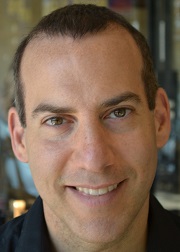(Updated January 10, 2024)
“I should think positive and avoid negativity.”
“I should use this time to accomplish something.”
“I should be cooking more often.”
“I should learn a new language.”
“I should exercise on a schedule.”
“I should be eating healthy.”
My advice on the best response to these five “should” statements: No, no, no, no and no.
Why should you reject these recommendations? For starters, this is not the time to accomplish much. The Covid-19 pandemic is creating a sustained sense of mental heaviness, the likes of which we’ve never felt before.
It feels as though gravity has become a heavier force that opposes everything we want and need to do. It pushes back on our efforts to take care of ourselves.
Reality Versus Your Expectations: The First Step Toward Conquering the “Shoulds”
A great first step for protecting yourself from the psychologically damaging effects of unrealistic expectations is to quarantine all of the messages promoting productivity. What do I mean by this? Be aware of how these messages affect you. Do you feel shame, failure, self-doubt, defeat, guilt or can you shake off the pressure to be productive? What does it feel like in your body?
Pay attention to the shoulds that determine how you judge yourself. Here are some common examples:
“I should work out since I have the time.” (Exercise is not meant to be a form of punishment. Guilt makes us exercise less. Commit to something that takes the thought process away. Once you’re in a “Should I, shouldn’t I?” mentality, there’s almost no way you will exercise, so don’t put that pressure on yourself.)
“I should be more positive.” (Really? If anything you need to accept that this is terrible. I’ll get into more depth with this one later in this article.)
“I should be doing more.”(No. You’re doing the best you can.)
“I should be more on top of my kids’ schoolwork.” (If you care about your sanity, you’ll leave this one alone.)
“I should be more thankful for what I have.” (How is this pressure going to help you to feel more thankful?)
Whatever you feel when the shoulds start ranting in your mind represents an important cue for you. Once you’re triggered by your shoulds, ask yourself, “What is the difference right now between my reality and my expectations?” Yes, it all comes down to expectations. Manage them and you will feel so much better.
Tell yourself, “I’m doing the best I can. My negative feelings are totally valid. This is a crazy, scary pandemic.”
Repeat.
“I’m doing the best I can. My negative feelings are totally valid. This is a crazy, scary pandemic.”
Repeat.
Seeing Through the Social Media Cloud
What about all of the images on social media that promote perfection, productivity and frolicking in nature? Well, that’s just not reality for most of us. Allowing yourself to be influenced by idealized visual reminders of an unattainable reality will only promote a sense of failure and self-loathing.
Pay attention to how awful you feel when you see posts of people living the good life. I know social media is a necessary distraction for many of us, but do yourself a favor and monitor its impact on how you view your life. I think you’ll find that many posts make you feel terrible about yourself. Unfollow the people who tend to make you feel less accepting of yourself. It’s a mentally freeing exercise.
Kudos to you if you feel something positive when you see video posts of celebrities showcasing their athletic kids bouncing on a trampoline next to their olympic-sized pool in their football-field-sized backyard in the hills of Hollywood.
Humor is a great tool for promoting self-acceptance and reducing negative self-appraisals. If you want to hear someone who has mastered this ability, watch Tova Leigh, a courageous social media influencer with an amazing talent for verbalizing what we’re all feeling but can’t admit to ourselves.
“My Instagram feed is filled with people cycling and boasting about all of the new skills they’re learning, like taking up new languages. How is knowing Mandarin helpful to you right now? You’re not going anywhere.”
Tova Leigh, Social Media Influencer and Writer
A combination of humor and a self-accepting appraisal of your current limitations will free you of some of the burden of the shoulds you carry.
Let’s move on to another strategy for controlling your “pandemic expectations.”
“Shouldhood Leads to Shithood!”
These are the immortal words of Albert Ellis, the Founder of Rational Emotive Therapy (RET or REBT), a therapeutic approach somewhat similar to Cognitive Behavioral Therapy.
Ellis encourages us to fight back against the shoulds, knowing that too many of them leads to self-loathing. The land of shouldhood is not a place from which to motivate yourself. Shoulds need to be disputed from a place of self-acceptance and realism. Challenge each should-statement by disputing their validity. Take the air out of your shoulds by coming from a place of self-acceptance and realism, especially considering the weight of the world that’s sometimes on our shoulders. For example, ask yourself where the evidence is that you’re supposed to be able to get in shape during the quarantine? It’s a pandemic right now. You’re supposed to struggle with motivation! You have more important things to deal with right now.
Immunity from Toxic Positivity
Toxic positivity is a newer term used to describe the pressure we feel to be positive and hopeful. These types of messages are omnipresent.
The problem is that they are often invalidating. When we feel a negative emotion and someone says, “Don’t worry, be happy,” or “think of the bright side,” it can be experienced as shaming us for feeling what we feel.
Some negative emotions can be healthy now and beyond the pandemic, such as sadness, sorrow, deep regret and great concern. The pandemic may demand that you face these states of mind. Allow yourself to feel them. Know that the most intense moments of feeling negative will pass.
In fact, you shouldn’t feel any differently. You’re supposed to suffer in this unbelievable time in history. Allow yourself to be human. As a human, you’re wonderfully flawed, prone to error, bad judgment and self-defeating behavior just like everyone else. Allow yourself to feel the raw feelings. You don’t have to be positive, but if you want to know the best way to live in the now and feel content, it all starts from a place of self-acceptance.
People will often be unaware of the pressure they’re putting on you to be positive. I recommend letting someone know that what they say isn’t helpful. You don’t have to say that they’re being toxic. Tell them something like, “You’re shaming me for feeling what I feel. I’d feel more supported if validated that it’s ok to feel (negative emotion).”
Pay attention to the sources that tend to make you feel shamed for feeling what you feel. Confront and/or avoid them to get through this time in your life. Moreover, be aware of your influence on other people. Are you validating what people feel or trying to force them to be positive?
There is a time and place for shifting your mindset from negative to positive. This may not be the time.
We’re not supposed to be fixing our lives. We’re in the midst of an overwhelming time during which all problems are not opportunities.
Summary
Sometimes we need to feel whatever it is we’re going through. Authorize yourself to be human so you have the space to be right where you are, as imperfect as you need to be right now. Minimize your exposure to social media that idealizes what life is supposed to be like during a pandemic can really help. Unfollow negative influences on social media.
Watch out for and dispute the shoulds in your self-talk to dilute the negativity and paralysis that your expectations create. In addition, strive to align your expectations with the reality of life under quarantine. This will promote less disappointment and more acceptance.
Please consider psychotherapy as a solid option if you are struggling to manage life under quarantine. There’s excellent help out there via video therapy. Also, please note that reading this post does not constitute a therapeutic relationship with Dr. Greg Kushnick. If you are feeling suicidal, there is immediate help available here.




